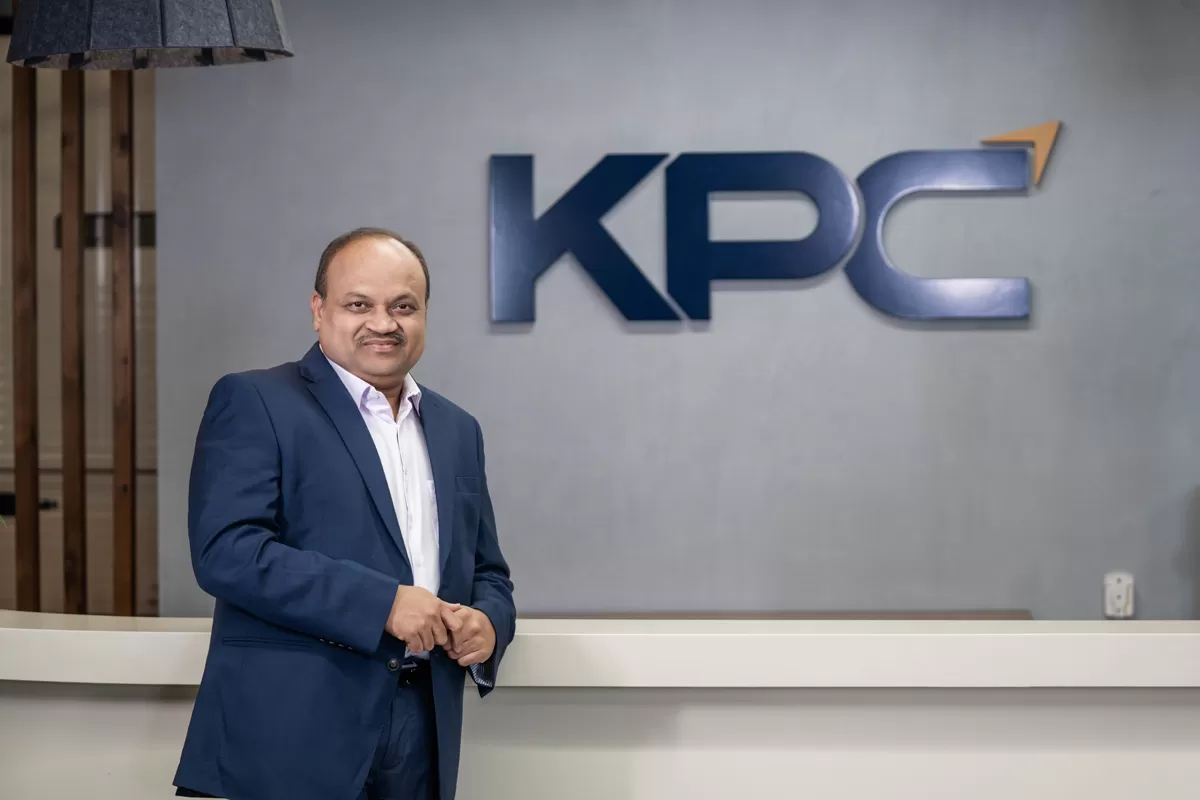KPC Projects is charting an ambitious growth path, backed by a Rs 50 billion order book and a strong foothold across sectors like healthcare, transportation and urban infrastructure. In conversation with CW, Anil Kumar Kamisetty, Chairman & Managing Director, shares insights into the company’s journey, key projects, technology strategy and vision for long-term expansion. Excerpts:With a robust order book and a diversified portfolio, which sectors do you foresee driving growth in the near future? How has your public-private order mix evolved? Built on the 52-year foundation laid by my father and strengthened by three decades of leadership by myself and my co-promoters, KPC is poised for sustained success. Our strong financial position, 10,000-strong workforce, advanced machinery and order book of Rs 50 billion underline our capabilities. Rated 'A' by CARE, certified as a Great Place to Work and backed by major financial institutions and NBFCs, KPC is ready to contribute to India’s growth.While we remain focused on core sectors, growth opportunities are expanding in healthcare, water and wastewater management, waste to energy, industrial parks and multimodal connectivity including roads, rail and airports. Our order book currently shows a 70:30 public-private project mix. We are now increasingly engaging with MNCs and national developers like GMR.Could you share updates and key highlights on major projects like the Gwalior and Hyderabad railway station redevelopments? Both are brownfield projects and are currently under construction. These are challenging as they require integration with operational railway stations, with critical work scheduled during block periods only. Gwalior railway station is the first in India to feature a concourse spanning six tracks with a composite metal deck slab. With a design recognised by the World Architecture Community Awards 50th Cycle, highlights include retail and F&B outlets at the concourse level, with airport-style passenger movement and segregation of arrival/departure flows and the use of GFRC, FRP cladding and skylights for natural ventilation. At Nampally railway station (Hyderabad), modular station building and major structures, including FOBs connecting to the metro station, are under development.What major construction challenges do you face in metro cities? One of the key challenges is acquiring adequate land for setting up essential support infrastructure such as batching plants, labour accommodation and material storage. Additionally, construction timelines are frequently impacted by traffic-related restrictions on vehicle movement. Environmental regulations, including periodic bans during high pollution periods like in Delhi, further affect operations. The cost and logistics of mobilising non-local bulk materials, along with sourcing skilled manpower, also remain significant hurdles.Which companies are you partnering with, and do you own or lease your equipment? We own nearly all our equipment, ensuring greater control over project timelines and quality. Our key partners include EINS Technik for aluminium formwork; HILTI, Rawl Plug and Dewalt for drilling tools; Innomac and ACE for construction equipment and cranes; and leading reinforcement steel suppliers such as RINL, Jindal, Vizag Steel, SAIL and Shyam Steel.What recent technologies has KPC Projects adopted? Please elaborate on how these are improving execution.KPC Projects has integrated several advanced technologies to boost efficiency and execution quality. Shear wall formwork technology has helped cut project time and costs by nearly 20 per cent compared to conventional methods. BIM reduces clashes between MEP services and minimises rework. For structural design, we rely on ETABS and SAFE. We also use space frame technology for large-scale developments like airports, while post-tensioning enables longer spans and optimises construction costs. Additionally, composite steel structures and prefabricated systems significantly accelerate timelines and reduce onsite waste.How do you manage cost escalations and ensure financial viability in large-scale projects?To ensure financial viability in large-scale projects, KPC Projects follows a structured, data-driven approach. This begins with detailed site visits and due diligence during bidding, followed by the establishment of a zero-cost budget at project launch. We conduct quarterly reviews using Balance Cost to Complete (BCC) reports to monitor and control costs. Annual budget planning is aligned with project milestones and monthly billing targets, supported by cross-functional coordination. We actively explore alternative vendors for cost-efficiency and carry out micro-monitoring of activities at the beginning and end of each month. Additionally, we refer to cost data from reputed consultants such as JLL, CBRE, Gleeds and Savills, and ensure that delays are documented for potential compensation.How is environmental sustainability integrated into your projects? At KPC Projects, environmental sustainability is central to our EPC-driven developments, including initiatives like the RGHCL One Lakh Housing Programme and TUDA Residential Towers. Our design approach emphasises green practices – maximising natural light and ventilation, using locally sourced materials and reducing waste through onsite reuse of debris. To support the UN Sustainable Development Goals and move toward a net-zero carbon footprint, we incorporate eco-friendly materials such as GGBS and fly ash as partial cement replacements. We also use AAC and fly-ash bricks, deploy solar energy to curb emissions and ensure finishes and landscaping are sourced locally, including region-specific flora for long-term ecological balance.Are there any plans to expand into international markets? India’s infrastructure potential for the next 15 years is immense. While our current focus is domestic, we remain open to overseas opportunities if the right venture arises.What are your growth plans? Where do you see KPC Projects in the next five years? Our focus remains on challenging, iconic projects. Diversification into sectors like real estate, metros, PPPs, airports, data centres and green energy is underway. We aim for 25 per cent year-on-year topline growth, targeting $ 1,166 million by 2035. In CSR, we’re aiming for a topline of $ 5.8 million in the next five years.What policy support or regulatory changes would you like to see to improve pollution control in construction? To advance sustainable construction, there is a need to establish more concrete recycling plants nationwide, which can convert construction debris into low-strength concrete for non-load-bearing uses. Additionally, government policy should encourage the use of recycled materials in low-volume road construction. Public sewage treatment plants (STPs) ought to supply recycled water to construction sites at nominal costs for activities like landscaping, flushing and dust control, reducing fresh water consumption and pollution. Further, mandating wash pits at construction sites for cleaning concrete equipment, such as transit mixers, would help prevent soil contamination from concrete wash waste.




















